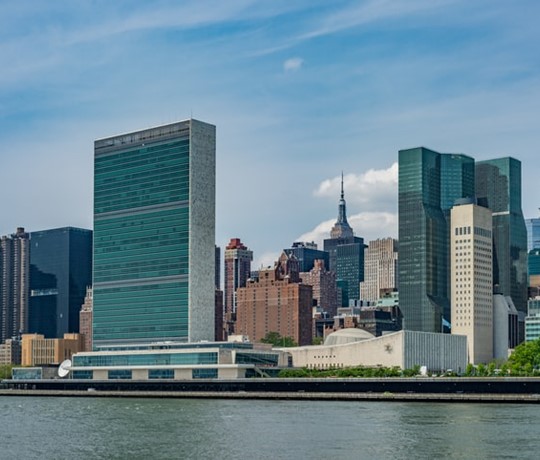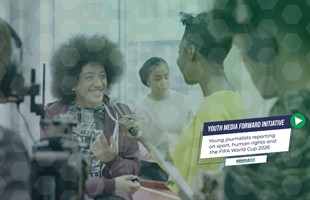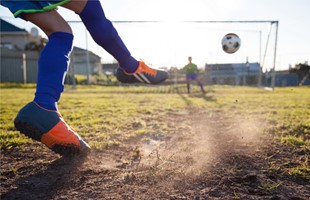The High-Level Political Forum and Ending Violence Against Children in Sport
Governments come together annually at the United Nations for the High-Level Political Forum (HLPF) to assess progress towards achieving the Sustainable Development Goals (SDGs). The HLPF is the core United Nations platform for follow-up and review of the 2030 Agenda for Sustainable Development and its 17 SDGs. Global progress on specific goals is reviewed together with country specific Voluntary National Reviews (VNRs).
High-Level Political Forum 2021
This year, the HLFP is being held in New York from 6 July to 15 July, with some events held virtually.

The 2021 theme is "Sustainable and resilient recovery from the COVID-19 pandemic that promotes the economic, social and environmental dimensions of sustainable development: building an inclusive and effective path for the achievement of the 2030 Agenda in the context of the decade of action and delivery for sustainable development".
The 2030 Agenda recognises that sport can be an important enabler of sustainable development. Sport should be an enabler for all athletes, whether playing in local clubs or in world championships, as well as for volunteers and spectators during events. It should, above all else, be safe. For this to happen, the entire sports ecosystem needs to make sure that all children are free from violence in and around sport.
The Kazan Action Plan (KAP) was adopted by UNESCO’s Sixth International Conference of Ministers and Senior Officials Responsible for Physical Education and Sport. The KAP calls for a recognition of the role sport can play in sustainable development and lays out the groundwork for measuring the contribution that sport can make toward achieving the SDGs. An inter-agency Open-Ended Working Group developed 27 indicators for measuring this contribution by sport. Among these are three specifically focused on ensuring that sport is safe for children, youth, women and vulnerable groups:
- #14. % funded national sport bodies / member organisations that have adopted formal policies (with procedures) to i) safeguard children and ii) prevent violence against women
- #19. # of i) athletes i) coaches/officials and iii) management/board members in funded national sport bodies /member organisations who were trained in the last year in a) governance and sport integrity b) safeguarding children, youth and vulnerable groups and c) prevention of violence against women and girls and d] promoting sustainable development.
- #20. % funded national sport bodies /member organisations with a nominated focal point to i) co-ordinate child safeguarding and protection and ii) prevent violence against women and girls
There has been progress by many sports bodies and governments in undertaking the actions called for in these indicators. However, for sport and government to contribute to the SDGs related to ending violence against children in sport, this should happen everywhere and in every sport, including a role for International Federations to monitor the progress made in their respective sports, and a role for governments in tracking this information and including it in their Voluntary National Reviews (VNRs).
This year, 43 countries submitted VNRs and we were pleased to see an increase in the number of countries making reference to sport in their reporting. For all children to be safe, more action is needed and one important development would be for countries submitting VNRs in 2022 to report their progress on the KAP indicators. This will be a crucial step towards the goal of making sport safe for all.



